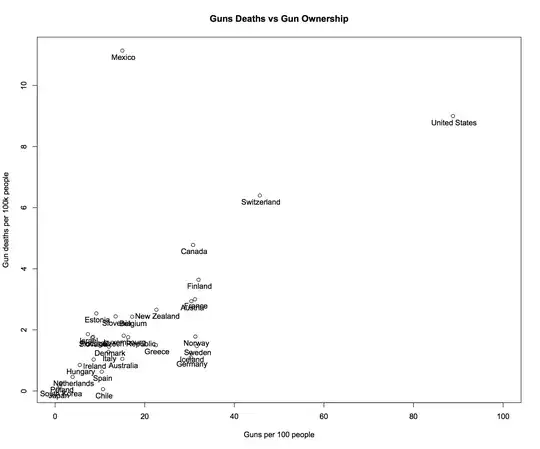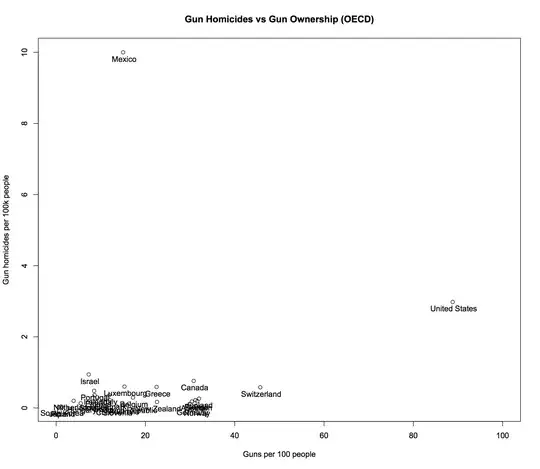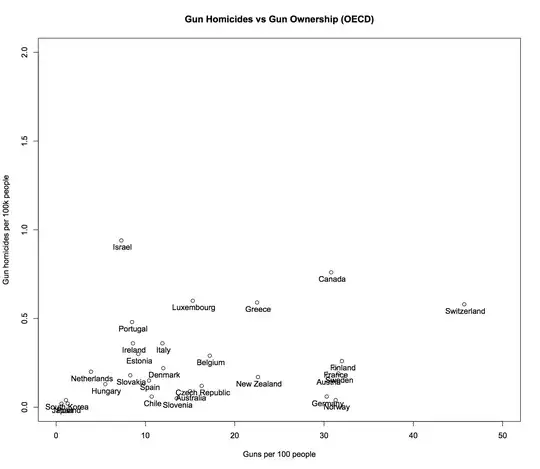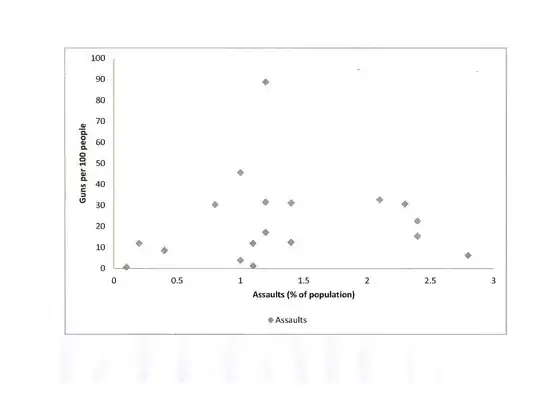UPDATE 4/4/2013:
The claim is somewhat supported by graphing the US Census Bureau's 2006 Violent Crimes Data and the "Gun Rights Index" calculated here:
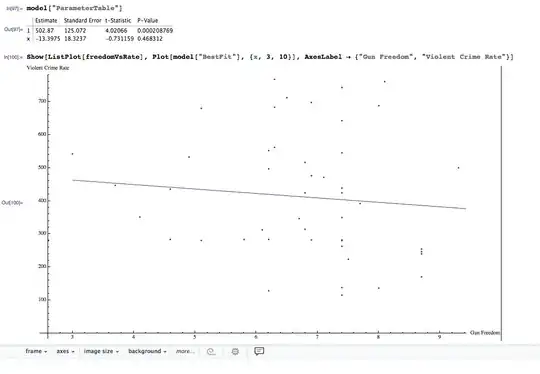
But, statistically, the correlation is very weak.
Here is the data I used, scraped from the cited sites:
data = {
{Alabama, 425, 6.8},
{Alaska, 688, 8.0},
{Arizona, 501, 9.3},
{Arkansas, 552, 6.2},
{California, 533, 4.9},
{Colorado, 392, 7.7},
{Connecticut, 281, 5.1},
{Delaware, 682, 6.3},
{Florida, 712, 6.5},
{Georgia, 471, 7.1},
{Hawaii, 281, 2.6},
{Idaho, 247, 8.7},
{Illinois, 542, 3.0},
{Indiana, 315, 6.8},
{Iowa, 284, 5.8},
{Kansas, 425, 7.4},
{Kentucky, 263, 7.4},
{Louisiana, 698, 6.9},
{Maine, 116, 7.4},
{Maryland, 679, 5.1},
{Massachusetts, 447, 3.7},
{Michigan, 562, 6.3},
{Minnesota, 312, 6.1},
{Missouri, 546, 7.4},
{Montana, 254, 8.7},
{Nebraska, 282, 7.4},
{Nevada, 742, 7.4},
{New Hampshire, 139, 7.4},
{New Jersey, 352, 4.1},
{New Mexico, 643, 7.4},
{New York, 435, 4.6},
{North Carolina, 476, 6.9},
{North Dakota, 128, 6.2},
{Ohio, 350, 7.4},
{Oklahoma, 497, 6.2},
{Oregon, 280, 7.4},
{Pennsylvania, 439, 7.4},
{Rhode Island, 284, 4.6},
{South Carolina, 766, 6.3},
{South Dakota, 171, 8.7},
{Tennessee, 760, 8.1},
{Texas, 516, 6.8},
{Utah, 224, 7.5},
{Vermont, 137, 8.0},
{Virginia, 282, 6.9},
{Washington, 346, 6.7},
{West Virginia, 280, 7.4},
{Wisconsin, 284, 6.2},
{Wyoming, 240, 8.7}
}
This is really a comment on @RedGrittyBrick's answer, but I do not know how to put graphics in a comment...
The claim is not supported by the data provided by @RedGrittyBrick (which are incomplete -- note FL's lack of gun crime data, which is a pretty important data point)...
Here's the plot of "Gun Murders / 1M Population" vs "Gun Ownership %":
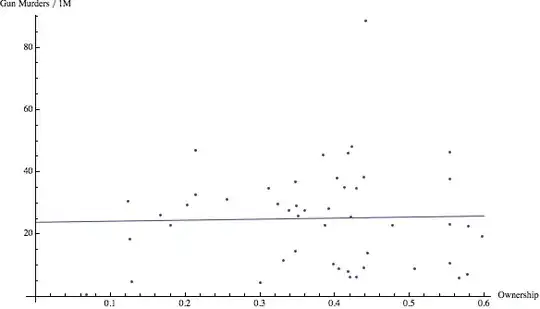
And the linear model parameter table:

This is totally back-of-the-envelope stuff, I haven't checked the sources, I don't assert a logical connection between "% gun ownership" and weaker gun laws, I'm dubious about the logical connection between "gun murders" and all gun crime, I shudder at the use of "The Guardian" as a primary source, etc.
Edit by RedGrittyBrick (I've now deleted my "Answer")
The data came from
US Liberals,
The Guardian,
ipl for kids
but primary data sources were claimed to be
